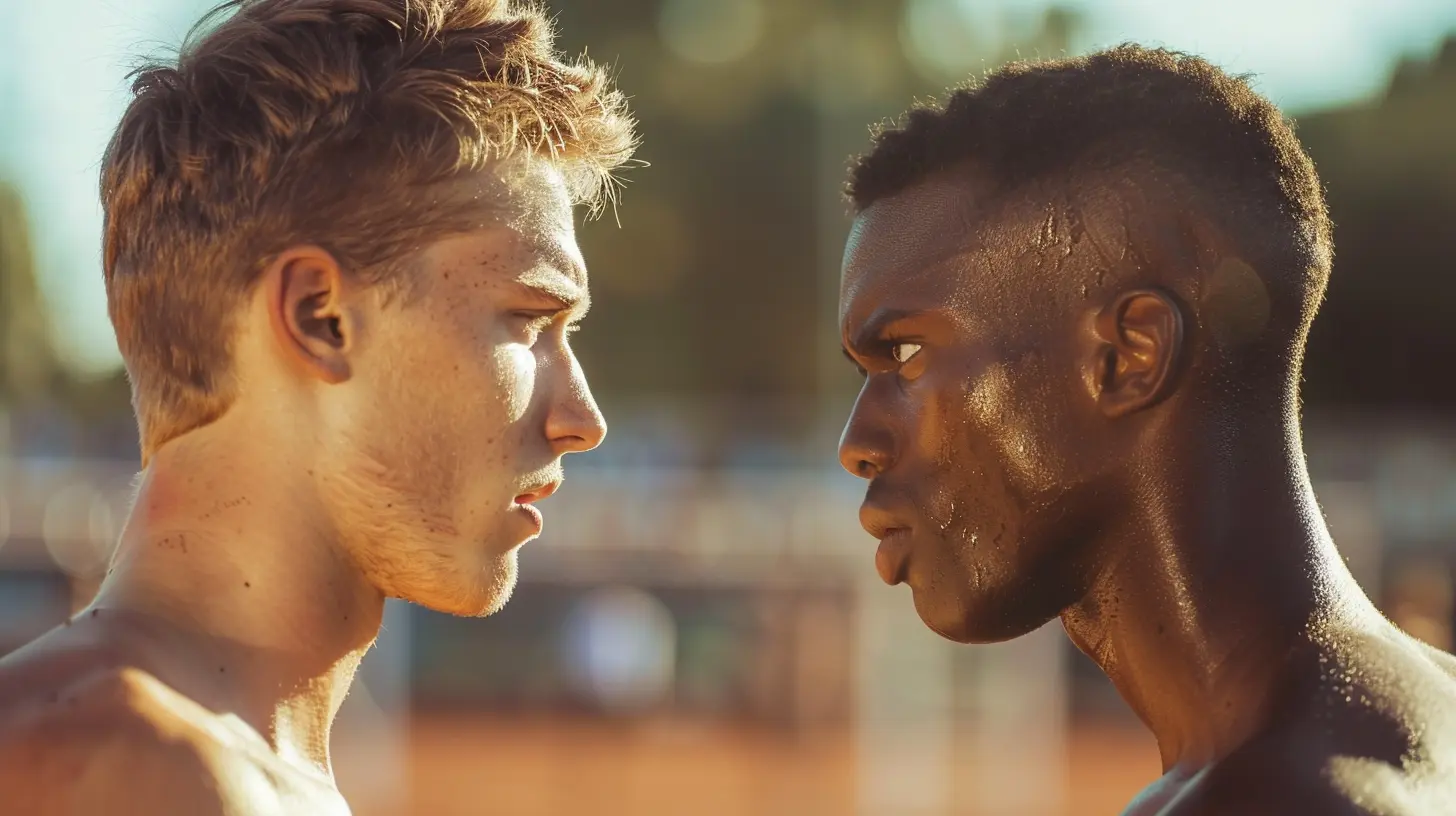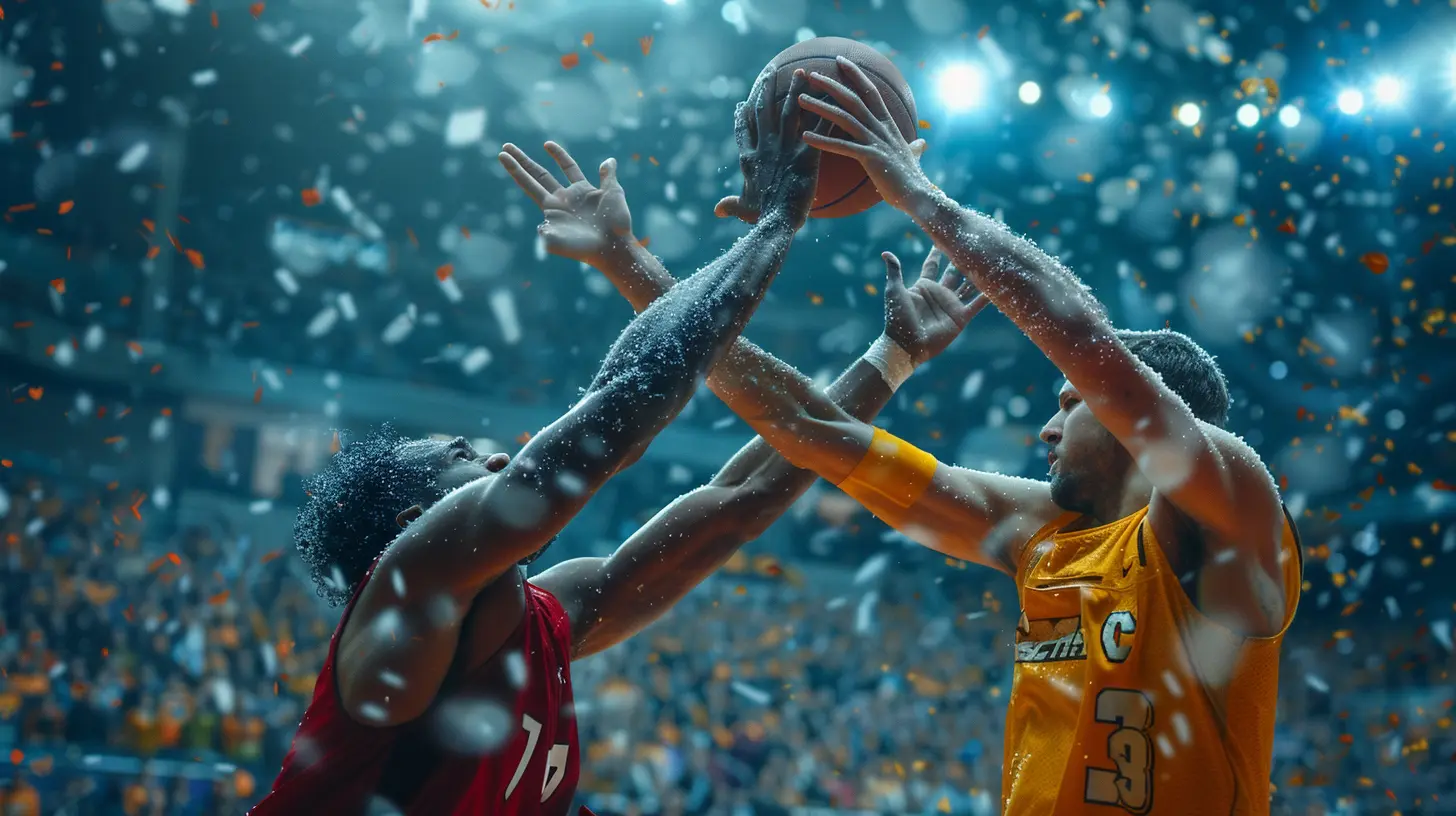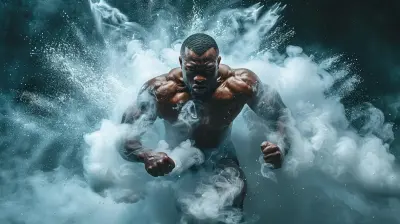Athletes Who Changed the Game with Their Sportsmanship
6 September 2025
When we think of legendary athletes, our minds often go to their unbelievable stats, jaw-dropping highlights, and record-breaking moments. But there's something even rarer than a game-winning shot or a gold medal—a moment of pure sportsmanship. Some athletes didn’t just break records; they broke the mold of what it means to win with grace, to lose with dignity, and to compete with heart.
In this post, we're shining a light on the athletes who not only dominated in their sports but also made us proud to be fans of the game. These are the true game-changers—athletes who redefined greatness with humility, kindness, and integrity. Ready to meet the MVPs of sportsmanship?
Why Sportsmanship Still Matters
Before we jump into the stories, let's ask the real question—why should we care about sportsmanship? In a world that's obsessed with winning, sportsmanship is like a breath of fresh air. It's the reminder that how you play says more about you than the scoreboard ever will.It's not about being soft. It's about being strong enough to care about more than just victory. Anyone can win a match; not everyone can win hearts. That’s what these athletes did—they played hard, but never forgot the honor of the game.
Jackie Robinson — Breaking Barriers with Grace
You can’t talk about game-changers without mentioning Jackie Robinson. The first African American to play in Major League Baseball in the modern era, Robinson didn’t just endure racism—he faced it head-on with dignity.On the field, he was electric. Off the field, he was tested every day. But guess what? He never retaliated. He handled jeers, hate mail, and threats with relentless grace. Teammates and opponents alike were moved by his composure. In fact, Robinson’s sportsmanship helped shift the culture of baseball and the entire country. Talk about impact.
Roger Federer — The Gentleman of Tennis
Ever seen Roger Federer lose a match? Even in defeat, he’s all class. Whether he’s winning Grand Slams or shaking hands after a loss, Federer has shown the world that ego has no place in greatness.He’s known for his calm demeanor, respect for opponents, and that honest smile. Federer’s rivalries with Rafael Nadal and Novak Djokovic are legendary—not just for the skills but for the mutual respect. When Federer speaks highly of a fellow player or applauds an opponent’s victory like a fan, it reminds us that being a GOAT doesn’t mean you look down on others.
Mia Hamm — Elevating Others on and off the Field
Mia Hamm helped put women’s soccer on the global map. But it wasn’t just her goals that inspired generations—it was her humility and team-first attitude.Even as arguably the best player in the world during her time, she never craved the spotlight. Hamm was always quick to credit her teammates and uplift others. She played every match with class, representing not just her team or her country, but the very spirit of the sport.
And when she retired? She didn’t walk away. She stayed involved, mentoring young athletes and giving back to the game she loved. That’s legacy.
Derek Jeter — The Captain of Class
In a city like New York, staying humble is no small feat. But Derek Jeter, the iconic Yankees shortstop, made it look effortless.Jeter played the game the right way—hard, fair, respectful. He never trash-talked. He never gloated. Even when he pulled off amazing plays, he acted like he'd been there before. Because he had.
He respected the game, his opponents, and the fans. And in return? He earned a level of respect that few athletes ever reach. That’s why they called him “The Captain.”
Nelson Mandela & Francois Pienaar — Unity Through Rugby
Okay, so Nelson Mandela wasn’t an athlete, but hear us out. In 1995, during the Rugby World Cup in South Africa, Mandela partnered with Springbok captain Francois Pienaar to change a nation divided by apartheid.Rugby had long symbolized white privilege in South Africa. But when Mandela appeared in a Springbok jersey to support the national team, it was more than a political move—it was an act of courageous sportsmanship that showed the power of unity.
Inspired by Mandela’s gesture, Pienaar led the team to victory. But more importantly, he embraced Mandela’s vision for a new, inclusive South Africa. Together, they used sportsmanship to heal a nation. Powerful stuff.
Lionel Messi — Quiet Leadership, Loud Class
In the world of flashy celebrations and social media flexing, Lionel Messi is like a silent storm. He lets his feet do the talking, and believe us—they say a lot.Messi’s sportsmanship is legendary. He rarely dives, doesn’t provoke opponents, and has a remarkable ability to stay cool under pressure. Whether he’s winning Ballon d'Ors or comforting a rival player, Messi embodies respect and humility.
Even when he's been fouled hard or insulted, he rarely retaliates. Instead, he picks himself up, dusts off, and keeps going. That’s what makes him not just a role model, but a true sportsman.
Rachael Denhollander — Bravery Beyond the Gym
Gymnastics might not be a contact sport, but the ethical challenges it faced were enormous. Rachael Denhollander wasn’t the most famous gymnast, but she may be one of the most important.She was the first woman to publicly accuse Larry Nassar, exposing years of abuse within USA Gymnastics. Her courage not only led to justice but sparked a global conversation about athlete safety.
Denhollander’s sportsmanship wasn’t about competition—it was about standing up for what’s right, protecting others, and demanding accountability in sports. Her strength redefined what it means to be a hero.
Roberto Clemente — Playing with Purpose
Roberto Clemente wasn’t just a baseball star — he was a humanitarian with a heart as big as his swing.Born in Puerto Rico, Clemente faced racial prejudice throughout his career. But he never let bitterness define him. Instead, he used his platform to fight for equality, help the underprivileged, and support communities in need.
He even lost his life in a plane crash while delivering aid to earthquake victims in Nicaragua. If that’s not the ultimate act of sportsmanship, we don’t know what is.
Abby Wambach — Tough, Honest, Real
Abby Wambach wasn’t just a powerhouse on the soccer field—she was the kind of teammate everyone wanted in their corner.She played with grit and passion but never at the expense of integrity. She admitted mistakes, owned her failures, and always put the team first. Her leadership during the 2015 Women’s World Cup was a masterclass in humility and strength.
Off the field, she’s just as inspiring—advocating for equal pay, LGBTQ+ rights, and mental health. Wambach reminds us that sportsmanship doesn’t stop when the game ends.
Andrew Flintoff — Grace in Cricket
Let’s step into the world of cricket for a moment. In the 2005 Ashes series, England’s Andrew "Freddie" Flintoff was a whirlwind of talent. But what people remember most is what he did after winning the match.Instead of just celebrating, Flintoff went straight over to his devastated Australian opponent Brett Lee, who had fought hard but lost. He offered a hand, a pat on the back, and a quiet moment of compassion.
That’s the kind of action that lives forever. Winning’s great, but empathy? That’s greatness.
Tim Duncan — The Quiet Giant
Tim Duncan wasn’t flashy. He didn’t talk trash. Heck, he even wore the same old jeans and shirts for most of his career. But he was pure class, through and through.“Fundamentals” was his nickname. And just like his game, Duncan’s sportsmanship was clean, solid, and unshakable. He led the San Antonio Spurs to five NBA titles without a single scandal or ego explosion.
He respected the refs (even when they didn’t deserve it), carried his team with quiet confidence, and treated everyone—from rookies to rivals—with equal respect. No wonder they call him the best teammate ever.
Conclusion: Sportsmanship Isn't Just a Bonus—It's the Whole Game
Look, talent is incredible. Winning feels amazing. But sportsmanship? That’s the stuff that lingers in your heart long after the final whistle. It’s the difference between a good player and a great human.These athletes showed us that you can be a beast on the field and still have a beautiful soul. They’ve inspired millions not just by how they played—but by who they are.
So next time you’re watching your favorite game, keep an eye out. The biggest moment might not be the winning goal. It might be the handshake, the hug, the high-five that says, “We’re all in this together.
all images in this post were generated using AI tools
Category:
SportsmanshipAuthor:

Ruben McCloud
Discussion
rate this article
1 comments
Signe Sanders
Great article! True sportsmanship inspires both athletes and fans, redefining the essence of competition.
October 2, 2025 at 3:49 AM

Ruben McCloud
Thank you! I'm glad you enjoyed the article and appreciated the importance of sportsmanship in shaping competition.


